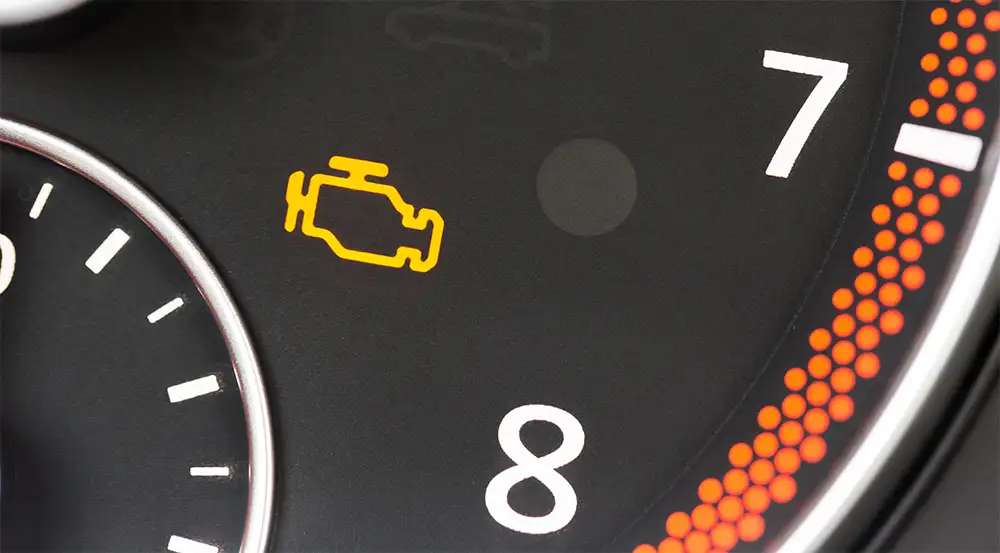Your car’s engine is its lifeblood, powering you through commutes, road trips, and everything in between. However, engines are complex machines, and even a small issue can lead to significant problems down the road. This is where an engine diagnostic test becomes essential. These tests utilize advanced technology to identify problems early, helping you avoid costly repairs and ensuring your car runs smoothly. But how do you know when it’s time to schedule one? Let’s dive into five signs that indicate your engine may need a diagnostic check-up.
Recommended reading: what to do if your car overheats
1. Check Engine Light Is On
One of the most common signs that something is amiss is the infamous check engine light. This little indicator can illuminate for various reasons, ranging from something as simple as a loose gas cap to more serious issues like engine misfires or catalytic converter problems. When this light pops on, don’t ignore it! A diagnostic test will read the trouble codes stored in your vehicle’s computer, revealing the underlying issue. Ignoring it can lead to decreased performance, reduced fuel efficiency, and ultimately, more expensive repairs down the line.
2. Unusual Sounds or Smells
Your car is a finely tuned machine, and any strange noises or smells can be a sign that something is wrong. If you hear knocking, grinding, or hissing sounds, it’s time to investigate. These sounds can indicate a range of issues, from worn-out components to serious engine troubles. Similarly, if you smell burning oil, gas, or any acrid odor, don’t take it lightly. A diagnostic test can help you uncover the source of these alarming signs, allowing you to address issues before they escalate into a more significant problem.
3. Decreased Fuel Efficiency
Have you noticed that your car isn’t going as far on a tank of gas as it used to? A sudden drop in fuel efficiency can be a red flag. Several factors can contribute to this issue, including faulty oxygen sensors, clogged fuel injectors, or even problems with your engine’s air intake system. These issues not only cost you at the pump but can also indicate larger mechanical problems. A diagnostic test will provide insights into what’s impacting your fuel economy, helping you restore that lost efficiency and save money in the long run.
4. Poor Engine Performance
If your vehicle hesitates, stutters, or stalls during acceleration, it can be both frustrating and unsafe. Poor engine performance might stem from various issues, such as a malfunctioning ignition system, inadequate fuel delivery, or a failing sensor. When your engine isn’t operating at its best, your safety is compromised. A diagnostic test will identify performance issues and guide you toward the necessary repairs, ensuring your vehicle operates smoothly and reliably. on
5. Warning Messages on Your Dashboard
Modern vehicles come equipped with advanced diagnostic systems that provide you with real-time feedback on your car’s health. If you see any warning messages on your dashboard—be it for the battery, engine, or other critical systems—it’s crucial to take them seriously. These alerts are designed to help you catch issues before they worsen. A diagnostic test will clarify the messages displayed, allowing you to tackle any problems before they develop into significant concerns.
FAQ
How much should an engine diagnostic cost?
The cost of an engine diagnostic test typically ranges from $75 to $150, depending on your location and the complexity of the issue. While this may seem like a small investment, it can save you from far more expensive repairs later on.
Will a bad engine come up on a diagnostic test?
Yes, a diagnostic test can often reveal serious engine problems. It checks various sensors and components, providing codes that indicate malfunctions and giving you a clearer picture of your engine’s health.
Is a car diagnostic test worth it?
Definitely! A diagnostic test is a proactive measure that can help identify issues early on, potentially saving you a significant amount in repair costs and keeping your vehicle running efficiently.
What does a full car diagnostic test tell you?
A full diagnostic test provides a comprehensive overview of your vehicle’s systems. It can highlight problems with the engine, transmission, exhaust, fuel system, and more, offering you crucial insights into your car’s overall health.
Conclusion
If you notice any of these signs, it’s time to schedule an engine diagnostic test. Catching issues early can save you time, money, and stress. At Mission Auto Repair, our expert technicians are here to help diagnose any problems your vehicle may be experiencing. We combine advanced technology with years of experience to ensure your car runs smoothly and efficiently. Don’t wait for small issues to snowball into major repairs—trust us to keep your engine in top shape!


